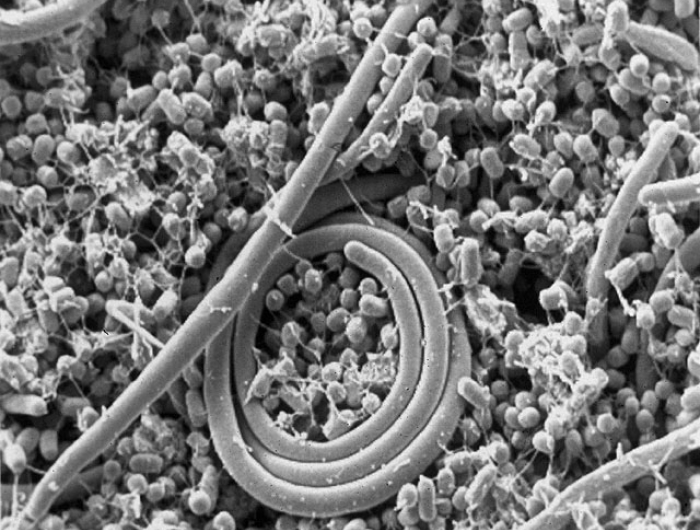Food safety advocates support USDA proposal to protect consumers from Salmonella in some processed chicken products

USDA.
Not-ready-to-eat breaded, stuffed chicken products pose greater risks
The Center for Science in the Public Interest and other food safety advocates are coming out in support of a proposal by the U.S. Department of Agriculture to protect consumers from Salmonella in some particularly risky poultry products.
At issue in the USDA proposal are chicken products that are breaded, stuffed, and not-ready-to-eat, such as Chicken Cordon Bleu, Chicken Kiev, and the like. Typically frozen, such chicken products have been disproportionately associated with Salmonella outbreaks. Those products account for a tiny fraction of domestic chicken products—only 0.15 percent—but have accounted for five percent of all chicken-related outbreaks.
Nonetheless, the move could have big implications for consumer health. Salmonella is the leading cause of hospitalizations from food poisoning, and chicken is the leading cause of illnesses from Salmonella.
For years CSPI and advocates like food safety lawyer Bill Marler have urged USDA to do a better job of controlling Salmonella in poultry, including by asking the agency to prioritize banning certain more dangerous strains or amounts of Salmonella.
USDA’s proposed rule, issued in April, would consider non-ready-to-eat breaded stuffed chicken products to be “adulterated” under federal law when they contain more than a particular, minimal amount of the bacteria—which could set a precedent for a ban in all raw poultry. The most recent move is part of a broader effort by the agency to reduce Salmonella illnesses linked to poultry.
In comments filed with USDA in support of its proposal, CSPI, Marler, and the other consumer advocates wrote that they support USDA’s proposed threshold, which they further say should prevent a substantial proportion of illnesses related to these products.
“Despite years of effort by the USDA, rates of food-borne Salmonella infections in humans have remained relatively steady for twenty-five years,” said CSPI food safety campaign manager Dr. James Kincheloe, a veterinarian. “We support USDA’s current effort to ensure that breaded and stuffed chicken products are safer for consumers, and we support the agency’s broader intention to reduce risk of Salmonella in other poultry products.”
Non-ready-to-eat breaded and stuffed chicken products often come pre-browned and may appear cooked but are most often raw. Research into outbreaks linked to such products indicates that consumers often don’t fully understand the raw nature of the products and may use improper techniques such as inadequate microwave cooking as opposed cooking in ovens.
“USDA’s proposed Salmonella product standard reduces the burden on home cooks to control this dangerous pathogen,” said Kincheloe. “That said, the higher risk profile for breaded and stuffed chicken products means consumers should still fully read and follow cooking instructions and use a meat thermometer to ensure an internal temperature of 165 degrees.”
Besides CSPI and Marler, signatories to the comment filed with USDA include representatives of the Center for Foodborne Illness Research and Prevention at The Ohio State University, Consumer Federation of America, Consumer Reports, and Stop Foodborne Illness. Marler and CSPI’s Sarah Sorscher are both interviewed in Poisoned: The Dirty Truth About Your Food, a new documentary streaming on Netflix that examines the ongoing problem of foodborne illness.
# # #
Tags
Topics
Contact Info: Jeff Cronin

